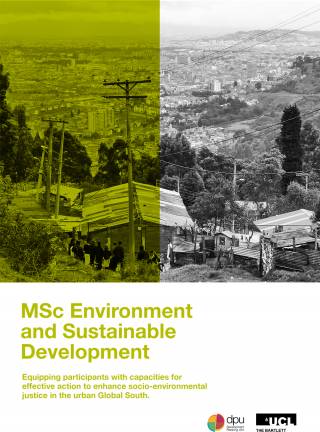Our module ‘Environment and Sustainable Development in Practice’ puts theory into practice. Our students learn from real environmental challenges and co-produce knowledge through Learning Alliances.
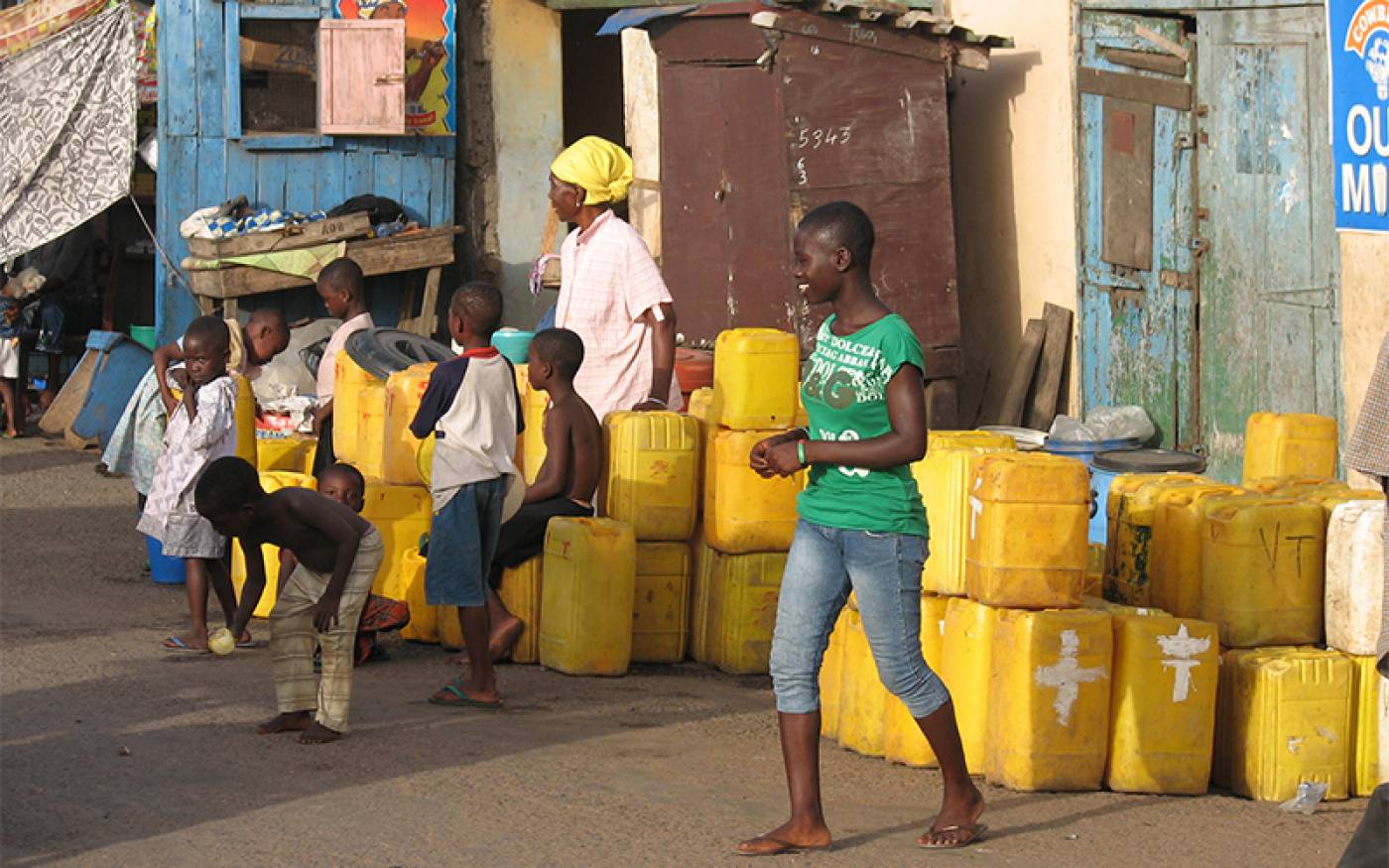
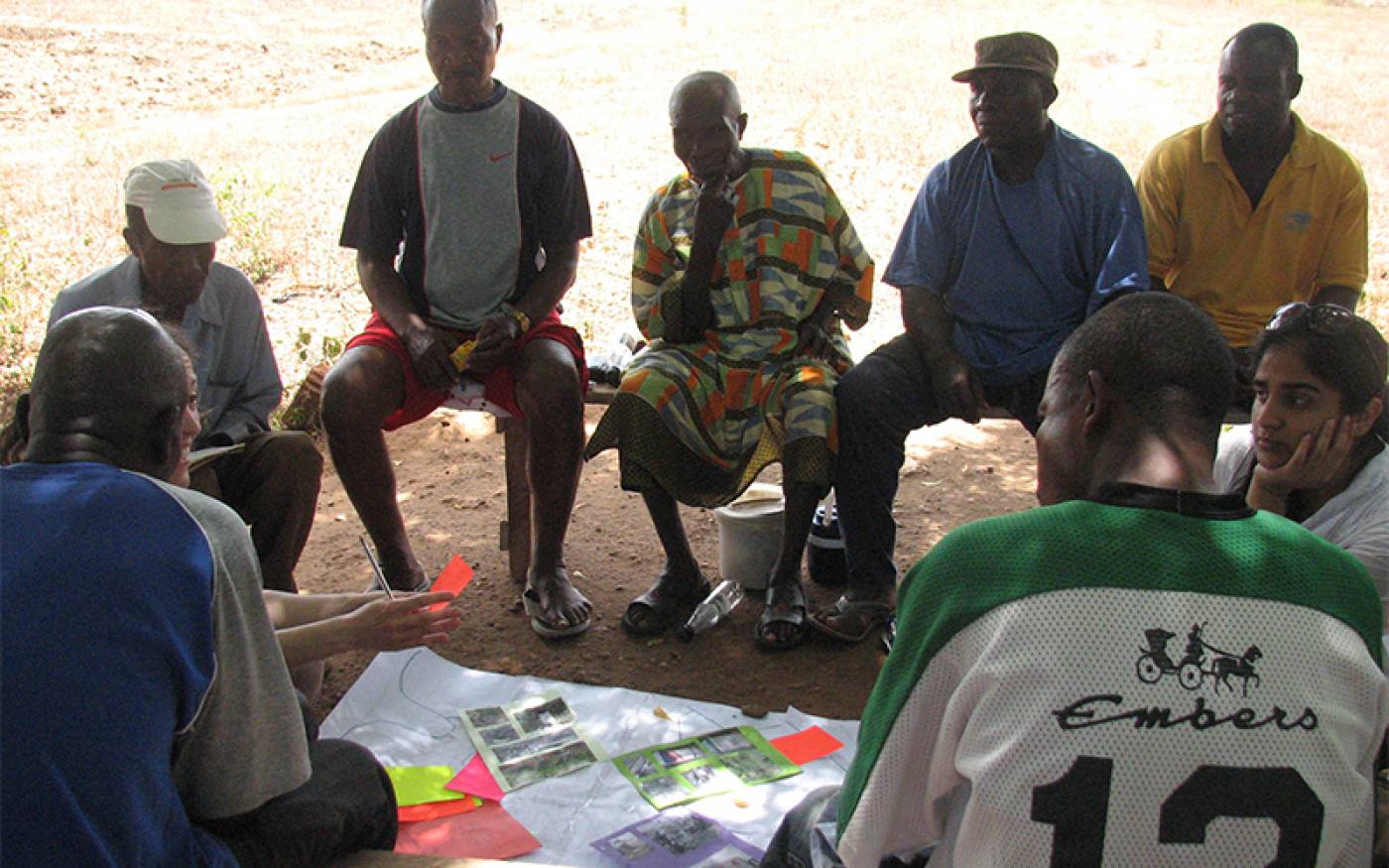
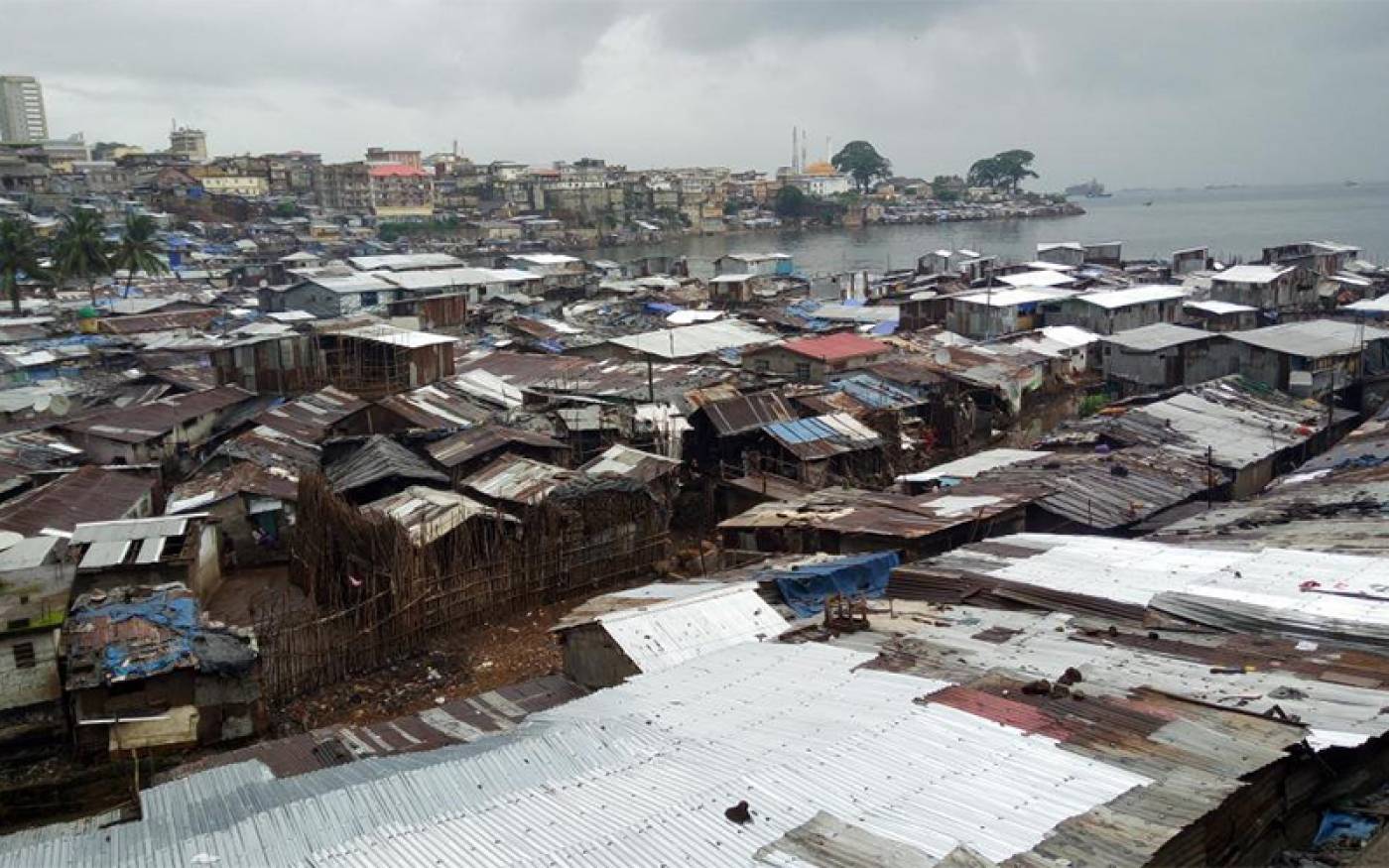
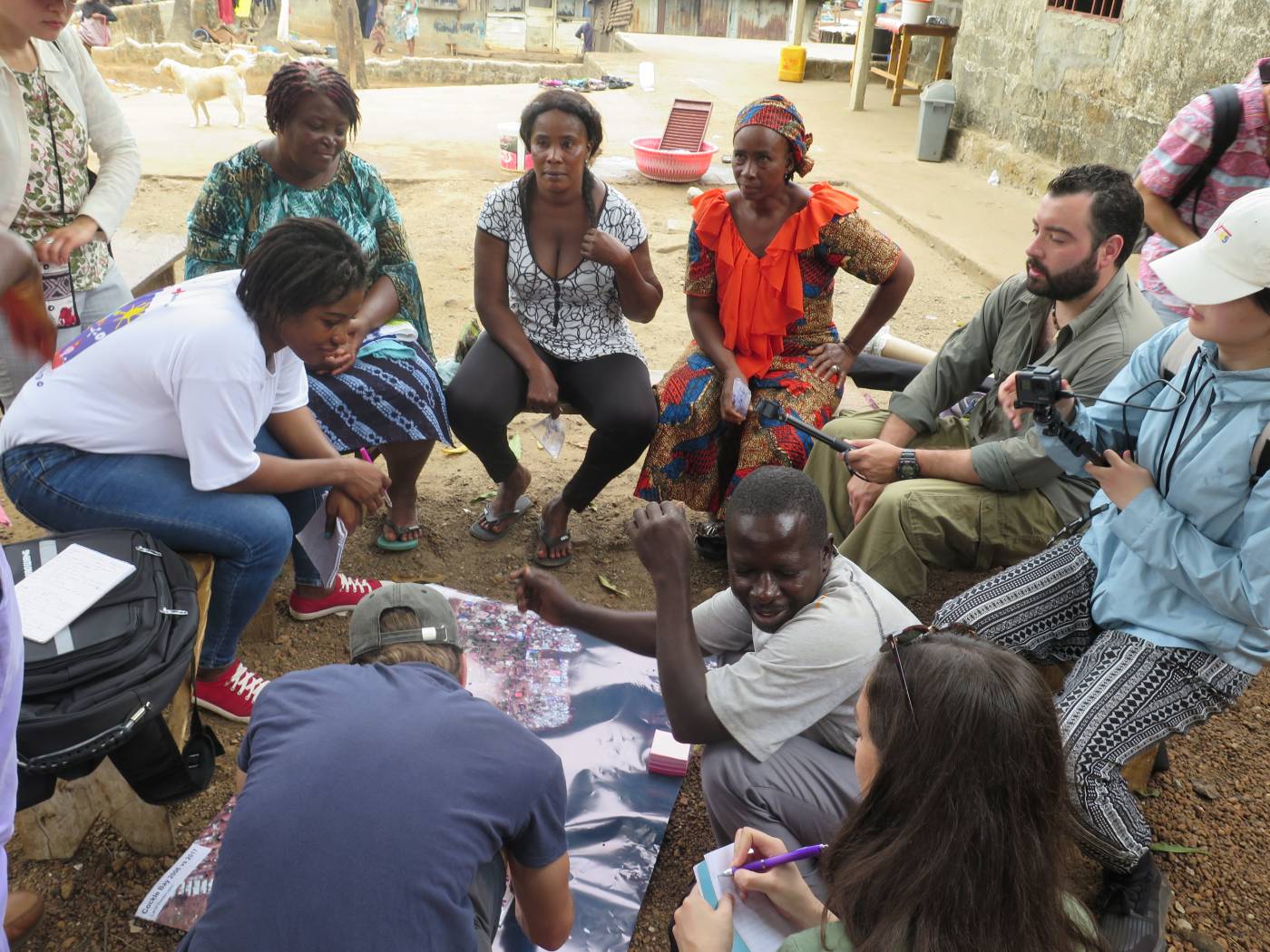
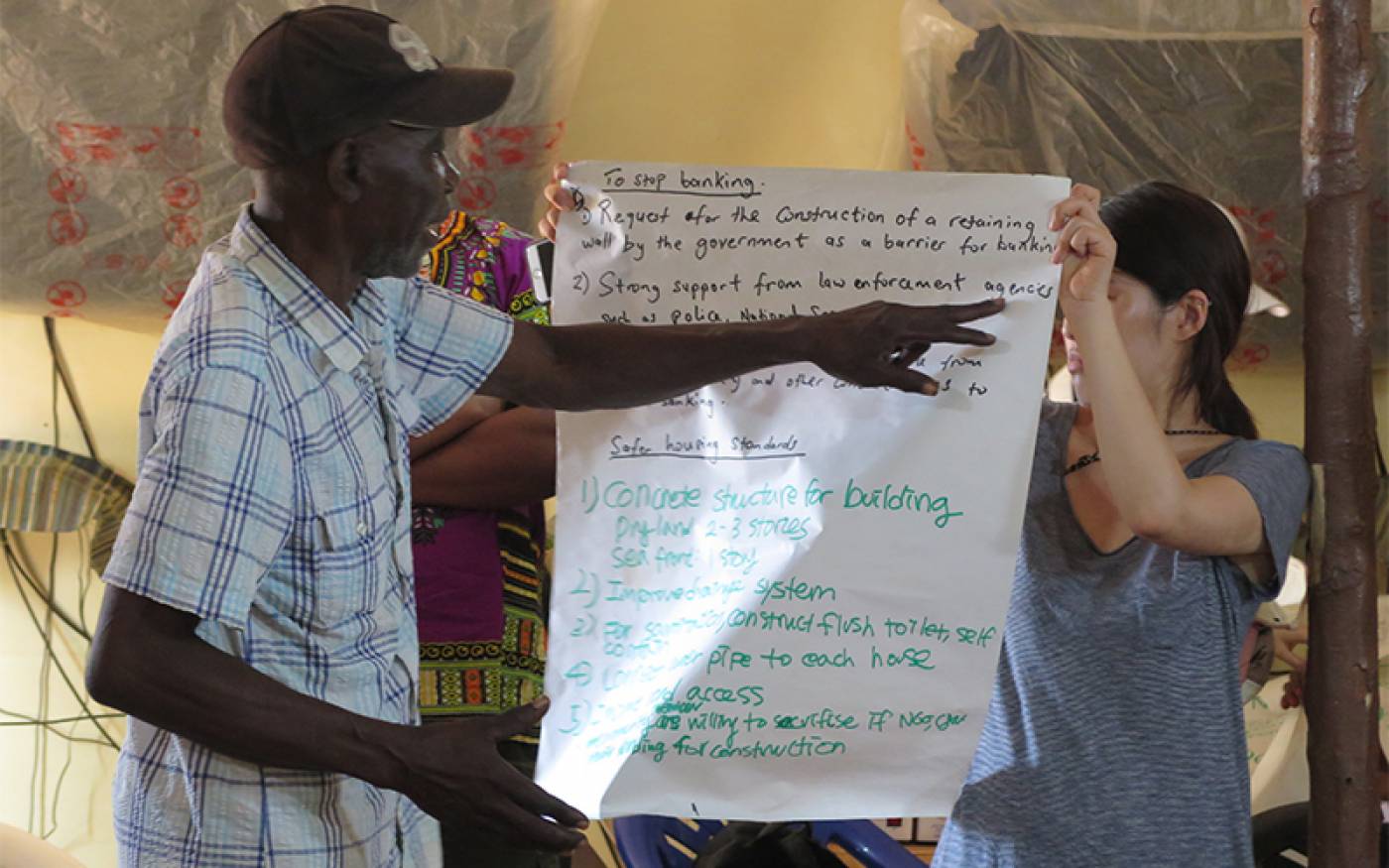
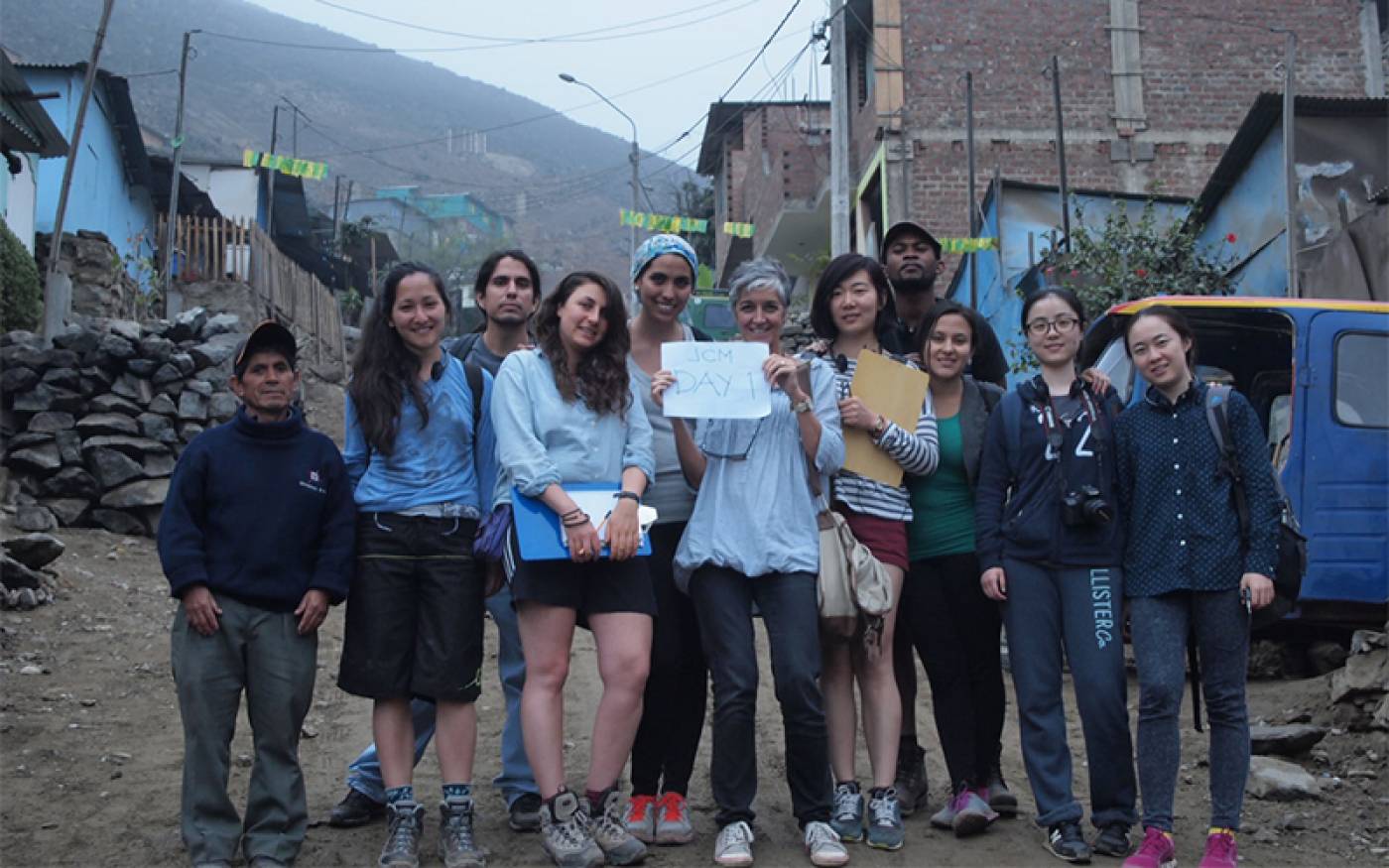
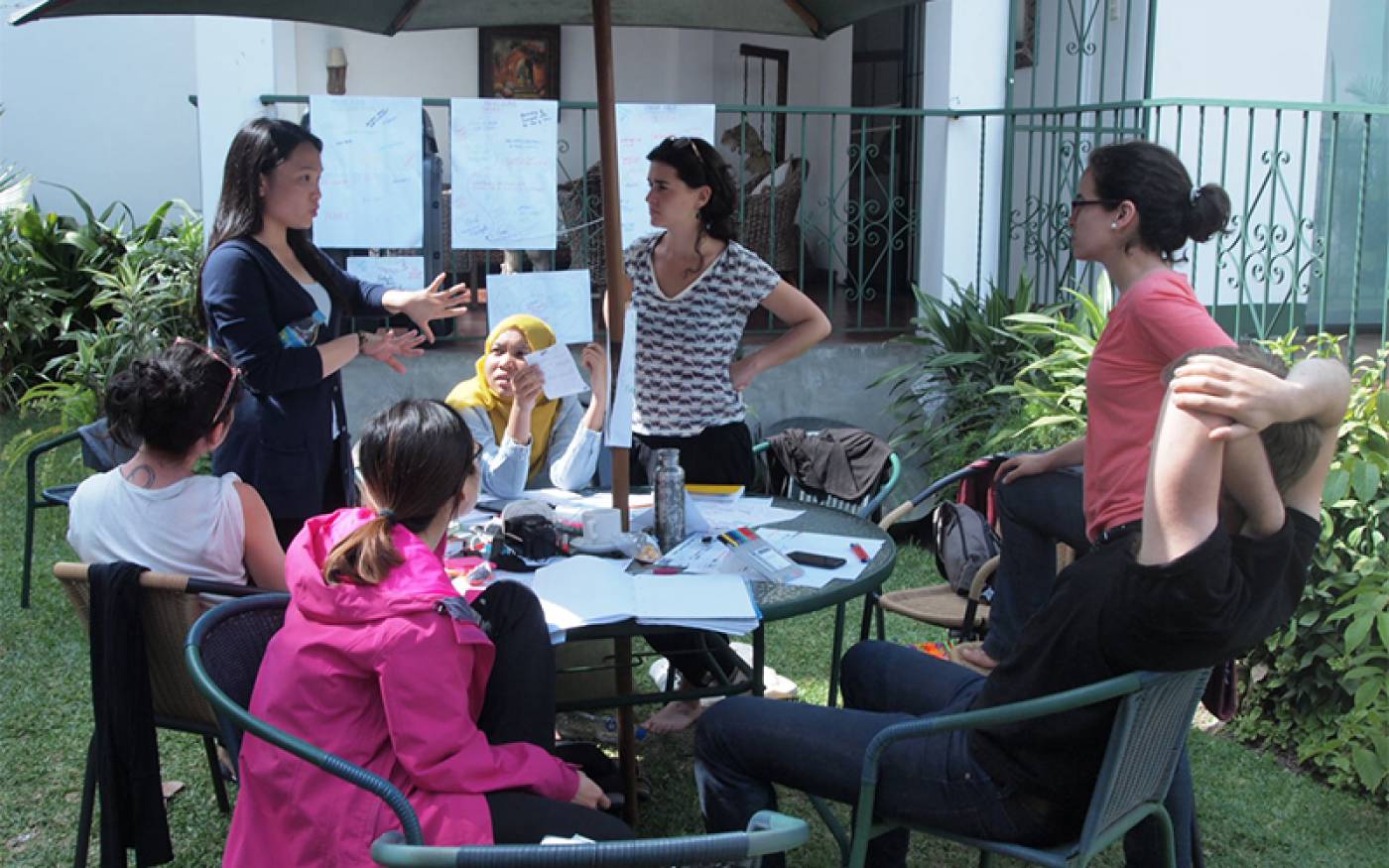
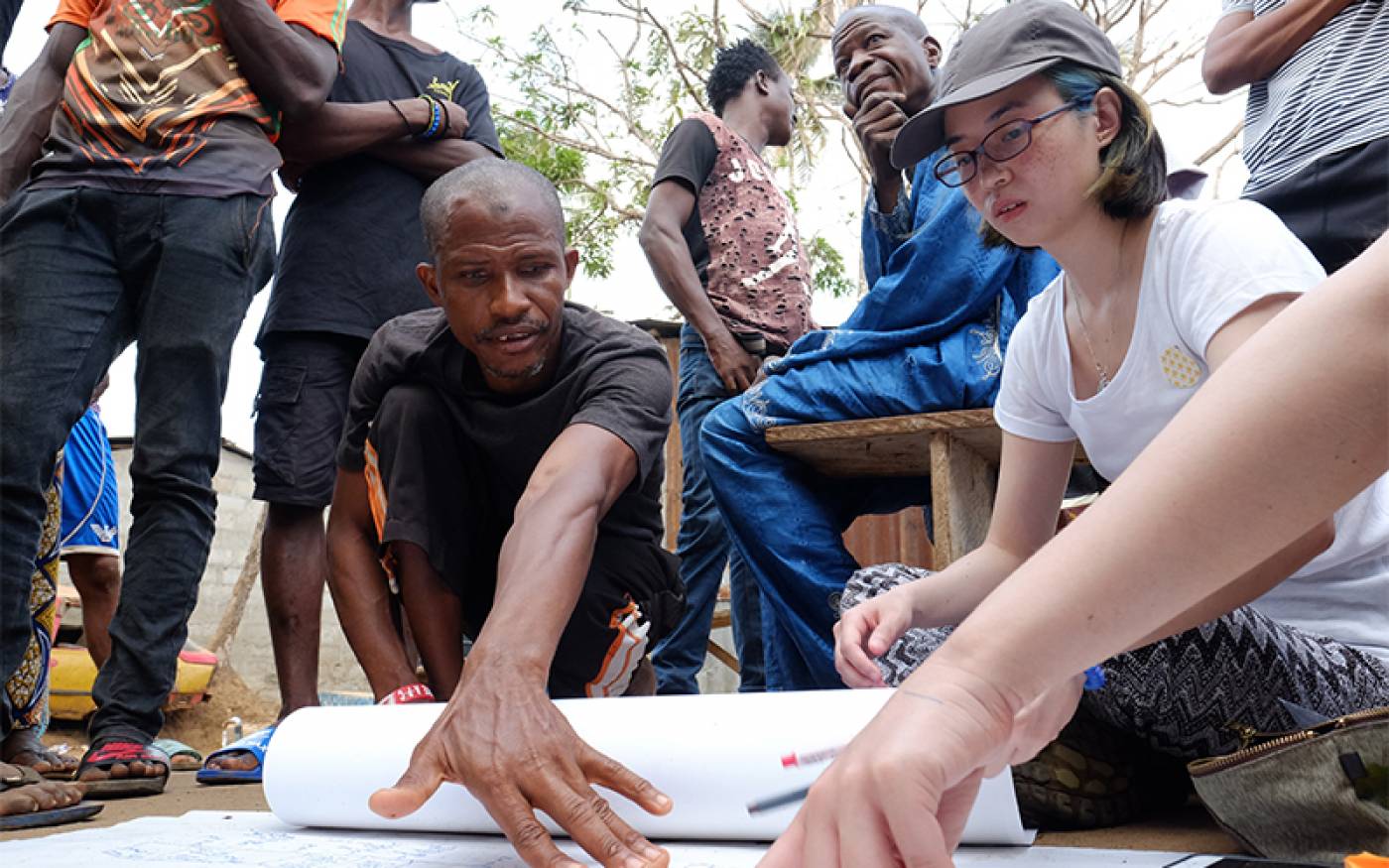
Our core module ‘Environment and Sustainable Development in Practice’ provides an exciting opportunity for participants to take part in an overseas practice engagement which builds upon the knowledge and skills gained across terms one and two of the academic year. Our overseas practice engagements are an opportunity for our students to engage with real-life challenges in the urban Global South, developing their clarity and agency as environmental practitioners.
As part of this module, Environment and Sustainable Development MSc students join our Learning Alliances which are action-research platforms seeking to co-produce actionable knowledge for environmental justice and sustainability in the urban Global South. These Learning Alliances bring together a high diversity of learners, including international students, various institutions, and civil society groups working for pro-poor development.
Over several years, our Learning Alliances have incrementally built a body of knowledge to understand how environmental injustices are produced in different cities and how they can be addressed. In addition to influencing policy-making and planning through strategy development, we also aim to strengthen the local research capacity of young professionals and partner institutions.
Our previous Learning Alliances have explored India, Ghana, Peru, Sierra Leone and Tanzania.
Discover more about our practice module 'Environment and Sustainable Develpment in Practice' through our overseas Learning Alliances, through our 'Insights from Practice' student blog series, and through our field trip videos on YouTube.
Overseas Learning Alliances
Our Overseas Learning Alliances shape our core module 'Environment and Sustainable Development in Practice'. Each year, our Environment and Sustainable Development MSc students put into practice and test academic theories and concepts they learn through the course's core modules, and they gain practical experience in advancing socio-environmental justice in collaboration with key actors on the ground in the Global South, including Tanzania, Sierra Leone, Peru and beyond.
Several months of collaborative research culminate in an overseas practice engagment whereby students conduct fieldwork with a partner organisation. Students present their work and collectively produce outputs such as videos and policy briefs to communicate their research findings and propose strategies for transformative change.
Discover where we've worked and the organisations we've partnered with in previous years:
2023: Mwanza, Tanzania
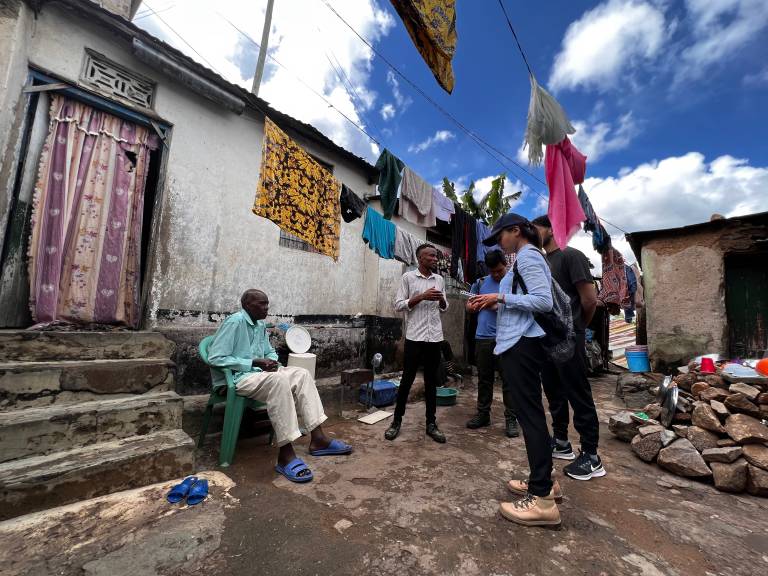
As part of the learning alliance with the action-research project OVERDUE, students from our Environment and Sustainable Development MSc have been producing actionable knowledge to advance just sanitation in the city of Mwanza, Tanzania. This research has been produced in collaboration with project partners Ardhi University and the Centre for Community Initiatives (CCI).
The research focused on five thematic entry points:
- Bridging grid and off-grid sanitation through simplified community sewerage system
- Shared sanitation facilities and land and housing tenure arrangements
- Grassroots collective action and financing mechanisms for just sanitation
- Social norms, bylaws and taboos regulating sanitation practices, gender relations, health and environmental outcomes
- Closing the sanitation loop, wastewater reutilisation for urban farming.
Following a 10-day field trip to Mwanza where students undertook primary data collection through a variety of focus-group discussions, key interviews and mapping exercises with residents of informal settlements, civil society organisations and local government officials, research findings have been captured in four policy briefs.
- Read the students' policy briefs
 Strategies for equitable access to urban sanitation: Bridging grid and off-grid technologies (PDF)
Strategies for equitable access to urban sanitation: Bridging grid and off-grid technologies (PDF) Keep the pot cooking: Community-led revolving funds and the key ingredients for just sanitation (PDF)
Keep the pot cooking: Community-led revolving funds and the key ingredients for just sanitation (PDF) Caring for the carers: Gender responsive sanitation policy and action (PDF)
Caring for the carers: Gender responsive sanitation policy and action (PDF) Closing the loop: Capturing the value of sustainable sanitation to benefit urban agriculture (PDF)
Closing the loop: Capturing the value of sustainable sanitation to benefit urban agriculture (PDF)
2018 to 2021: Freetown, Sierra Leone
Our Environment and Sustainable Development students conducted action-research in Freetown, Sierra Leone to contribute to an understanding of how and why risk accumulation cycles or ‘urban risk traps’ affect local dwellers and their communities in Freetown’s informal settlements, and how they can be disrupted in a structural way.
Our Learning Alliance leveraged on our partnerships with the Sierra Leone Urban Research Centre (SLURC), the Federation of the Urban and Rural Poor (FEDURP), Pull Slum Pan Pipul (PSPP) and the communities of six case study areas.
2021 marked our fourth and closing year of the Learning Alliance in Freetown, Sierra Leone, where our Environment and Sustainable Development MSc students have been co-producing knowledge with our partners and interns at the Sierra Leone Urban Research Centre (SLURC), facilitators from The Bartlett Development Planning Unit (DPU), local communities and international organisations.
We worked through four different but connected thematic areas:
- Land and housing
- Urban infrastructure and services
- Ecological infrastructure
- Food security.
Our engagemeent with project partners focused on developing strategies within each thematic area by learning from existing initiatives and from exchanging knowledge between different contexts in Africa and beyond.
- Read the report from our 2021 Learning Alliance in Freetown
Transformative strategies for a just Freetown
Edited by Rita Lambert and Pascale Hofmann- Read more about the 2021 Learning Alliance team
Our students worked closely alongside SLURC staff and interns and facilitators from the DPU to evaluate successful initiatives around the world under the four thematic areas and draw important lessons and strategies for Freetown.
SLURC team
- Ibrahim Bakarr Bangura
- Hawanatu Bangura (Awa)
- Amadu Labor
- Mary Sirah Kamara
SLURC interns
- Musa F.M Wullarie
- Fatima Kabba
- Michael Garrick
- Henry David Bayoh
DPU facilitators
- Dr. Nikhilesh Sinha
- Alban Hasson
- Loan Diep
- María José Nieto Combariza
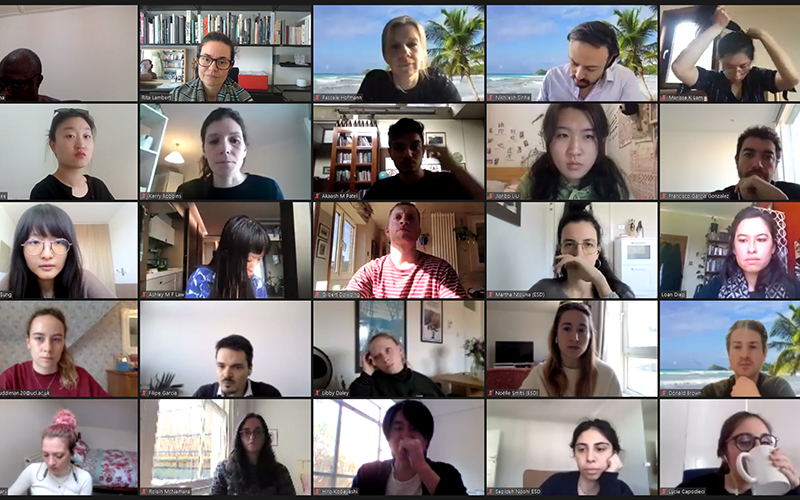
- Watch the videos from our 2020 Learning Alliance in Freetown
- Read the policy briefs from our 2020 Learning Alliance in Freetown
- Policy brief 1 - Food security through urban agriculture
- Policy brief 2 - Land and shelter tenure security
- Policy brief 3 - Ecosystem services management
- Policy brief 4 - Decentralised Water and Sanitation (WASAN) infrastructure and services
- Policy brief 5 - Sustainable and equitable energy transitioning
- Policy brief 6 - Enhanced mobility
- Policy brief 7 - Integrated solid waste management. Strategic entry points to disrupt risk traps
- Watch the case study videos from our 2019 Learning Alliance in Freetown
- Read the policy briefs from our 2019 Learning Alliance in Freetown
- Policy brief 1 - Exploring the multi-dimensional aspects of coastal flooding
- Policy brief 2 - Exploring the multi-dimensional aspects of coastal flooding
- Policy brief 3 - Exploring the risk accumulation cycle of fires in Freetown’s informal settlements
- Policy brief 4 - Landslides and building collapse
- Policy brief 5 - Multi-hazards related to poor solid waste management
- Policy brief 6 - Water and sanitation related diseases
- Policy brief 7 - Reframing risk into opportunity. The case of occupational hazard key points in Freetown’s urban agriculture
- Policy brief 8 - DPU MSc ESD/SLURC Learning Alliance. Co-learning for action to transform Freetown
- Watch the case study videos from our 2018 Learning Alliance in Freetown
- Cockle Bay: We Tomarra Bambai (Our common future)
- (Re)Integrating Moyiba towards environmentally just resource management
- Towards a safe, healthy and risk-free Dwarzack
- Governance across levels: Collective action for healthy and risk free Susan's Bay
- From Portee to Rokupa: Bridging together
- Building a collaborative and hazard-free CKG
2013 to 2017: Lima, Peru
This Learning Alliance was linked to cLIMA sin Riesgo, a DPU action-research project funded by Climate and Development Knowledge Network (CDKN) which examines urban risk traps and their impact on people's lives and investments.
In 2013, our first year of our Learning Alliance in Peru, we partnered with Foro Ciudades Para La Vida to focus on 'Transformative planning for environmental justice in metropolitan Lima: Water, risk and urban development' following the DPU research platform 'Water Justice in Latin American Cities'. Our objective was to contribute to the understanding of the relationship between water, risk and urban development and develop strategies that contribute to transformative change. Following fieldwork research in Peru, our MSc students produced videos and reports (in both English and Spanish) in collaboration with our project partners and participants.
In 2014, the second year of our Learning Alliance in Metropolitan Lima, we focused on 'Environmental justice in Lima: Co-learning for action'. We aimed to understand how environmental injustices are produced and how they can be addressed by exploring scenarios and strategies embedded in the wider socio-political, economic and ecological processes. We focused on four case studies - Barrios Altos, Cantagallo, José Carlos Mariátegui and Huaycán - which each provide a unique lens through which we learn about the wider processes of change shaping metropolitan Lima. We explored power relations, the challenges facing citizens, and the strategies citizens are adopting at the neighbourhood level to gain insight into the wider drivers and dynamics of urban change.
In 2015 to 2017, our Environment and Sustainable Development MSc students undertook research to develop an understanding of the relationship between everyday risk and urban development in Metropolitan Lima, and to develop an environmental action plan in collaboration with local communities and organisations for selected case studies within this jurisdiction. With our local partners within ‘Foro Ciudades Para la Vida’, CENCA, CIDAP and SEA, we chose six areas in Metropolitan Lima to ground our investigation, including Costa Verde, Barrios Altos, El Agustino, José Carlos Mariátegui, Chuquitanta and Pachacamac. We chose these areas to offer unique readings of the city, enabling a better understanding of the urbanization processes, institutional, private and local communities practices, and socio-environmental trends operating in Metropolitan Lima.
- Watch the project videos from our 2017 Learning Alliance in Lima
- Discover the outputs from our 2016 Learning Alliance in Lima
Project videos:
Policy briefs in English and Spanish:
- Discover the outputs from our 2015 Learning Alliance in Lima
Project videos:
Student report - Co-learning for action: Exploring the relationship between everyday risk and urban development in Lima
The videos and report are also available on the Learning Lima website.
- Discover the outputs from our 2014 Learning Alliance in Lima
Project videos:
Student report - Environmental justice in Lima: Co-learning for action (PDF)
- Discover the outputs from our 2013 Learning Alliance in Lima
Project videos:
Barrios Altos
- Pre-field trip diagnosis video
- Post-field trip video report (English)
- Post-field trip video report (Español)
Cantagallo
Huaycán
- Pre-field trip diagnosis video
- Post-field trip video report (English)
- Post-field trip video report (Español)
José Carlos Mariátegui and Casablanca
Costa Verde
- Pre-field trip diagnosis video
- Post-field trip video report (English)
- Post-field trip video report (Español)
Student report - Transformative planning for environmental justice in metropolitan Lima
2009 to 2012: Accra, Ghana
In our 2009 overseas practice engagement, we investigated 'Urban and Peri-Urban Agriculture (UPA) in the city' of Accra, Ghana.
In our 2010 overseas practice engagement, we investigated 'Urban and Peri-Urban Agriculture (UPA) in the city' of Accra, Ghana.
The focus of our overseas practice engagement in Accra, Ghana, in 2011 was 'Urban and Peri-Urban Agriculture (UPA) in the city: the potentials and challenges faced by those practicing it as their livelihood'.
Our 2012 overseas practice engagement focused on environmentally just urbanisation through urban agriculture in Accra, Ghana.
- Read the report from our 2012 Learning Alliance in Accra
Report - Environmentally just urbanisation through urban agriculture
Subsections include:
- Chorkor and Jamestown: Fishing for Resilience, Restoring Coastal Systems (page 7)
- Legon: Securing Livelihoods and Green Open Spaces (page 163)
- La: Vulnerable Groups and the Decision-making Process (page 225)
- Old Fadama: Challenging Perceptions (page 51)
- Nima: Rethinking Space through Social relations (page 95)
- Read the student reports from our 2011 Learning Alliance in Accra
- Read the student reports from our 2010 Learning Alliance in Ghana
- Read the student reports from our 2009 Learning Alliance in Ghana
2007 to 2008: Mumbai, India
In 2007, our Environment and Sustainable Development MSc students were 'Working with pavement, railway and slum dwellers in a conflicting housing environment'.
In 2008, our overseas practice engagement focused on 'Resettlement and rehabilitation' in Mumbai, India.
- Read the student reports from our 2008 Learning Alliance in Mumbai
- Transformation or ghettoisation? The tale of two sites of relocation for pavement dwellers in Mumbai
- Mumbai Urban Infrastructure Project: Relocation and rehabilitation of project affected people
- On the right track to transformation: Relocation and rehabilitation of railway slum dwellers under Mumbai Urban Transport Project (MUTP)
- Read the student reports from our 2007 Learning Alliance in Mumbai
- Mumbai Urban Infrastructure Project: Relocation and rehabilitation of project affected people
- Ghettoization, negatively impacted livelihoods, and service and maintenance shortfalls following upon the relocation and rehabilitation of railway slum dwellers under the Mumbai Urban Transport Project
- From security of tenure to sustainable livelihoods: An integrated approach to the relocation of pavement dwellers from Byculla to Milan Nagar and beyond
To find out more about our previous overseas Leaning Alliances and the outputs produced, visit the ESD Learning Alliance website.
Insights from Practice
A vital part of our 'Environment and Sustainable Development in Practice' module is the ability to encourage our students to critically self-reflect throughout their learning journeys, and ultimately develop our students into reflexive, ethical and forward-looking environmental practitioners. We do this in several ways, starting with an exploration of our students' assumptions about urban socio-environmental transformation and the skills required to become active players in pursuing transformative planning. Students capture their individual development across the three terms through personal blogs and share their reflections through our 'Insights from Practice' blog series.
- Read the student blogs
Beyond the mango tree: An exploration and reflection on women, care and sanitation in Kigoto
By Annabel Collinson
Annabel shares her insights into fieldwork research on women's experiences of time, labour and care in Kigoto (Mwanza, Tanzania) and how women's access to sanitation affects their mental and physical wellbeing.Unlocking collective trauma: Knowledge production, possession, and epistemic justice in "The Act of Killing" and the 1965 genocide in Indonesia
By Kafi Khaibar Lubis
Kafi provides a case study analysis of how film allows subjects to participate in creating narratives, heal collective trauma, and address debates about how to create a more just future.The temporality and plurality of sustainability
By Sophie Avent
The key lessons Sophie learned about the role of the researcher and the importance of partnerships from the overseas practice engagement in Mwanza, Tanzania.We know your problem, and we're going to fix it
By Tywen Thomas
Tywen questions what decolonisation means, situated in the context of fieldwork research in Mwanza, Tanzania.The first last time: Lessons for uncertain times
By Aisha Aminu
A story of how Aisha grew as a researcher through remote, group-based fieldwork.The other side of Chungking Express
By Natalie Kwong
An investigation into how racial stereotypes in film, attributed to the South Asian community in Hong Kong, have led to the production and reproduction of epistemic injustices.What specific processes produce and reproduce epistemic injustices? What strategies to co-produce actionable knowledge are most fruitful to challenge them?
By Edoardo Repetto
Edoardo looks at how knowledge production can lead to the reproduction of epistemic injustices, such as racism, sexism, classism and ableism.Re-educating the educated
By Rachel S Fisch
Rachel reflects on her ability to re-educate the education system after taking in the lessons of the Black Lives Matter movement, through the lens of James Baldwin's 'paradox of education'.
More of our outputs
- To find out more about our previous overseas Learning Alliances and the outputs produced, visit the ESD Learning Alliance website.
- You can find all our field trip videos hosted on YouTube.
 Close
Close


